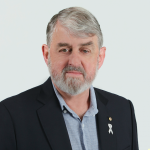Drug Decriminalisation Is Logical: An Interview with SSDP Australia’s Penelope Hill

The tough on drugs approach has been shown to actually increase the harms associated with the use of illicit substances. However, successive Australian governments have ignored the evidence and continue to apply zero tolerance policies.
Nowhere is this more apparent than in the state of Victoria at present. The Andrews government passed a bill last month that effectively places a blanket ban on legal synthetic drugs, despite warnings that a similar ban in the UK resulted in more harmful batches turning up on the streets.
Victoria police are calling for expanded powers that would enable them to search people at festivals without a reasonable suspicion to do so. The police force also recently carried out Operation Safenight, which saw officers employing the use of sniffer dogs in Melbourne’s nightclub precincts.
And Victorian premier Daniel Andrews is refusing to take on board a recent parliamentary inquiry’s recommendation to trial a safe injecting facility in North Richmond. Even though, it has the support of the police association, ambulance employees and the firefighters union.
The silence of those in office
Over recent years, many ex-politicians and law enforcement officials have been calling for drug law reform and the implementation of harm reduction strategies.
Mick Palmer, former Australian federal police commissioner, supports the implementation of drug decriminalisation measures.
Former NSW premier Bob Carr has spoken out in favour of pill testing. And former Victorian premier Jeff Kennett has been a vocal proponent for the establishment of a safe injecting room in Richmond.
In fact, Mr Carr has said one of his most significant achievements during his time in office was approving the establishment of the medically supervised injecting centre in Sydney’s Kings Cross.
But, when it comes to current politicians from the major parties, voices supporting these sorts of measures are thin on the ground.
Pill testing is coming
Although, there has been one significant development over recent week’s that’s shown the tide is turning. The ACT government has shown its mettle and approved the first pill testing trial at an Australian music festival.
On November 25, a free pill testing service will be in operation at Canberra’s Spilt Milk festival.
The current push to implement this evidence-based approach was sparked by six drug-related deaths at music festivals nationally over a 13 month period ending in December 2015. And since then, preventable deaths have continued to occur at these events.
Getting real on drugs
While older politicians continue to drag their feet on harm reduction, it is often young people who are suffering the consequences. Young Australians are continuing to die unnecessarily, as there are no safeguard measures in place to ensure the quality of the illicit substances they are taking.
And that’s where Students for Sensible Drug Policy (SSDP) Australia come into play. Established in March last year in Melbourne, this group is allowing young people to have an active voice in how they think drugs should be approached, and what reforms should be undertaken.
Sydney Criminal Lawyers spoke to Penelope Hill, president of SSDP Australia, about what steps they’ve been taking to reduce drug-related harms, the revival of harm reduction methods in Australia, and why the decriminalisation of drug possession and use is the only way to go.
Firstly, Penelope, how would you describe the approach of Australian authorities to illicit substances?
The overall approach is extremely unbalanced. You just have to look at the federal funding that goes into our drug strategy. Over two-thirds is spent on supply reduction, which is law enforcement. About a quarter is spend on demand reduction, which is treatment and education.
And only about 2 percent is spent on harm reduction initiatives.
In respect to health authorities, they’ve embraced harm reduction in the past with the HIV epidemic. But, then the support for harm reduction faded over the last few decades.
But, it’s now picked up again with the PBS listing of direct-acting antivirals for hepatitis C, co-scheduling of Naloxone for opioid overdoses, and now the ACT government support for pill testing at a music festival.
Harm reduction is becoming more supported again.
Currently, there are a lot of former politicians and law enforcement officials calling for drug law reform and harm reduction strategies.
However, there’s a lack of current politicians who vocally support these sorts of approaches. Why do you think this is the case?
It takes a lot of courage for politicians to step up on controversial issues. And they can lose a lot of mainstream support. So, that’s probably why politicians are more comfortable to come out in support after they leave office.
It’s really encouraging down here in Victoria to see Geoff Howard, who is the chair of the drug law reform committee, come out against his own party in support of pill testing and the supervised injecting facility in North Richmond.
The Victorian government is holding an inquiry into drug law reform, which will be tabling it’s report in March next year. What sort of recommendations do you hope will come out of this inquiry?
A group of SSDP students in Victoria were recently invited to present before the committee, after we made multple submissions to the inquiry. We had students from various universities from Melbourne speaking before the committee.
Our overall recommendation was for the decriminalisation of all use and possession, which is an easy reform that the Victorian government could make. It would have a vast effect in reducing a lot of stigma and discrimination around drug use, increase the ability of people to access treatment, and significantly reduce costs to the justice system.
We also recommended the involvement of students and young people in the creation of Victorian drug policy, and recommended the acknowledgment of the need to recognise the role that stigma plays in providing barriers to reducing harmful drug use.
We recommended cannabis policy reforms, pill testing and the importance of informed education as a protective factor in drug policy.
And do you think we are at a stage in the drug law reform campaign where some robust recommendations made by the inquiry might actually be taken up by government?
In Victoria, it’s really hard to say. The recommendations aren’t coming out until mid-next year, and we’ve got a state election here in late 2018. So, it’s quite hard to say if anything will come from any recommendations made, as the government will go into election campaign mode.
We’re hoping that any recommendations won’t just be lost.
But at the same time the inquiry is underway, the Andrews government is taking a tougher approach to drugs. Last month, a bill was passed in the upper house that places a blanket ban on synthetic drugs.
What sort of effect do you think this blanket ban will have?
We don’t support the ban and believe that a blanket ban on synthetics will be ineffective. Banning synthetic substances will just result in more synthetic drugs being produced, which are potentially more harmful. You can just look at what happened with synthetic cannabis.
Prohibition on other substances, whether synthetic or not, has clearly not worked. So, I’m not sure of the reasoning behind this bill and why they think that a new blanket ban will just start working.
Premier Andrews is also rejecting the trial of a medically supervised injecting centre in North Richmond. SSDP made a submission to the parliamentary inquiry into the trial.
Just how dire is the need for a safe injecting facility in Richmond? And do you think the premier is likely to budge?
The need for a safe injecting facility in Richmond is extremely high. Its establishment would reduce street drug use, lessen the strain on emergency services, and would actually support the local community.
The tough on drugs messaging of the Andrews government suggests that people dying from drug use is the right message to send, as opposed to a government that could prioritise public safety and support for people who do inject drugs.
I believe they will wait for the drug law reform recommendations to come out. Even though, they said they’d wait for this report to come out and they haven’t supported it, despite its recommendation being for the injecting facility.
So many groups have come out in support of the facility now. It’s really hard to say.
The ACT government has approved a pill testing trial for the Spilt Milk festival. SSDP has been advocating for the roll out of such trials.
Do you think it will be more likely a trial will be undertaken in Victoria now that another jurisdiction has allowed it to happen? And just how urgent is the need for pill testing nationwide?
Firstly, I’d really like to congratulate the ACT government for supporting the pilot for pill testing at Spilt Milk. We worked really hard on that campaign, along with the consortium: Harm Reduction Australia, the Noffs Foundation, ACTINOS and DanceWize Victoria.
So, we are really appreciative of the support from the government. And we are really happy that we have gotten it over the line.
It’s more likely to happen in Victoria now once we’ve had the pilot. The inquiry committee has been extensively briefed on pill programs already operating in Europe. Some have been operating for the last 20 to 25 years.
The need is desperately urgent all around Australia, not just in Victoria. We don’t want to see any more deaths at any music festivals anywhere in this country this summer.
It’s good timing that the support has come through right at the beginning of summer, as we’re about to get really busy with festival season, and we don’t want to see one more person die at a music festival.
SSDP announced it was taking an interim step earlier this year. Your organisation started handing out free reagent pill testing kits to students and at festivals.
How effective has this initiative been?
The initiative has been really interesting. Our wider initiative, along with some other organisations, was to support reagent testing, because that’s the best we can do. Legally we can hand out reagent kits, where we can’t technically do the lab testing that we will be doing at Spilt Milk.
The initiative has been supported by students on campuses that are trained to do the program. Students have shown in surveys that they want to use the services, and do actually actively want to take steps in reducing harm around drug use.
But, we do want to emphasise that although reagent testing is a great first step in identifying different substances, and will reduce a lot of potential harm, the more comprehensive laboratory testing that we will be doing at Spilt Milk is much more favourable and very much needed around the country.
In NSW, police use of sniffer dogs is notorious. How widespread is the use of drug dogs by Victoria police? And what sort of impact is it having?
Generally, the use of drug dogs is only at music festivals and large events. And now, around some nightclub precincts.
Drug dog operations in general are expensive and ineffective ways to reduce harm to the community. And they often result in people pre-loading or consuming drugs in a panic because they’ve seen the dogs.
They often single out users over dealers. And they can result in people not wanting to bring anything into an event and then buying something on site, when they have no idea what they are buying.
We’re not supportive of that at all. There’s no real proven evidence that drug dog operations work.
So, you don’t have drug dogs at train stations, like we do in NSW?
No. I do follow the Sniff Off campaign though. So, I do see all of the posts that say the dogs are at Redfern or at Central or at Kings Cross.
But, we don’t have that in Victoria at the moment, and hopefully it stays that way.
SSDP is an international organisation that started in the United States. The Australian group has been going for about 18 months now.
What’s the response been like?
The response has been absolutely overwhelming. We only set up the first club in semester one last year at Deakin University. And we’ve already had six to seven clubs start up on campus.
We’ve heard from hundreds of students around the country who are really supportive. They want to join and get something started on their campus. We’ve also had so much support from other organisations in the harm reduction and drug policy reform field in Australia.
It’s been a really great way to collaborate with other young people and students around the world. We’re involved with a lot of organisations joining all the SSDP networks and other young harm reduction organisations, so we can share resources and policies and learn from each other.
Through the international SSDP network, we’ve had a lot of involvement at the most recent United Nations Office of Drugs and Crime sessions.
We’re just absolutely overwhelmed by the amount of interest we’ve had from students. It shows that there is a big need for an organisation like this, where we can empower young people to actually have their voices heard on drug policy reform, and how drug policy relates to them.
At O Week tables, when we’re recruiting, we’ve had students come up to us and say, “Oh, we can actually talk about this. This is fantastic.”
And what campaigns do you have a focus on at the moment?
Basically, they revolve around the pill testing in Canberra, and the reagent testing. And also, recruitment for next year.
We operate on the university year. We get a lot of students joining in the March Orientation Week at the different campuses. So, we have to get ready for that.
And lastly, where do you sit on the question of decriminalising or legalising illicit substances. What do you think would be the right way to approach an end to drug prohibition?
Decriminalisation is a logical next step. As I said before, it will reduce a lot of the harms around drug use and reduce the cost to the justice system, and the cost of drug policies in general.
It won’t actually address the risks with drug use itself. Early warning systems are needed to let the public know what substances are out there and how potent they are and what they might be adulterated with.
Decriminalisation paves the way for more of a benefit maximisation approach to drugs, where we can see medicinal cannabis and heroin-assisted treatment. We need more funding for psychedelic research. That could all come as a logical step through decriminalisation. And then obviously regulated supply should be well-considered and involve a lot of stakeholders.
SSDP doesn’t have the answer to what model would be best in Australia, but that needs to be a big discussion on a lot of different levels, with a lot of different stakeholders.
Penelope, thanks very much for taking the time out to have this chat with us today.
Thank you.







